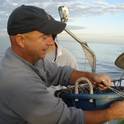Presentation
A Summary of Post-Deepwater Horizon Oil Spill Open-Ocean Faunal Population Dynamics: Vulnerability, Resilience, Data Gaps, and Management Implications
Marine & Environmental Sciences Faculty Proceedings, Presentations, Speeches, Lectures
Event Name/Location
Gulf of Mexico Oil Spill and Ecosystem Science Conference / Tampa Bay, Florida
Document Type
Conference Proceeding
Publication Date
2-4-2020
Disciplines
ORCID ID
0000-0002-5280-7071
ResearcherID
W-8662-2019
Citation Information
Tracey Sutton, Rosanna Milligan, April Cook, Tamara Frank, et al.. "A Summary of Post-Deepwater Horizon Oil Spill Open-Ocean Faunal Population Dynamics: Vulnerability, Resilience, Data Gaps, and Management Implications" (2020) Available at: http://works.bepress.com/tracey-sutton/241/

To summarize the extensive and comprehensive GoMRI-funded ecological/ecosystem impact research (“Core 3”) conducted during the GoMRI tenure (145 projects, 661 publications to date), the Core 3 leadership group organized the ensemble information into four major ecotypes: coastal, continental shelf, benthic, and open-ocean. Such an effort requires cross-cutting integration to develop higher-level takeaway syntheses for future decision making. One useful approach is to rank key taxa in terms of oil spill risk, a product of taxon-specific vulnerability and resilience to oil spill events. Here we summarize the post-spill population dynamics of the open ocean fauna based on available information, highlighting the numerous data gaps that exist (e.g., pre-spill abundance data, information on life-history processes, quantified exposure metrics). Numerous taxa exhibited dramatic population declines since the oil spill, likely the confluence of high vulnerability and low resilience capacity. Other taxa exhibited small population decreases, suggesting low vulnerability (perhaps due to avoidance capacity) and/or high resilience (high productivity over short time frames). For many taxa, the dispersion capacity of the open gulf may have exacerbated the impact of the spill rather than ameliorated it. Evidence suggests the potential of an ecosystem-level cascade that may indicate an altered ecosystem state in the oceanic Gulf of Mexico. Continued ecosystem monitoring is therefore critical to fully understand the dynamics of the putative impacts to, and the latent recovery capacity of, the gulf’s open-ocean ecotype.